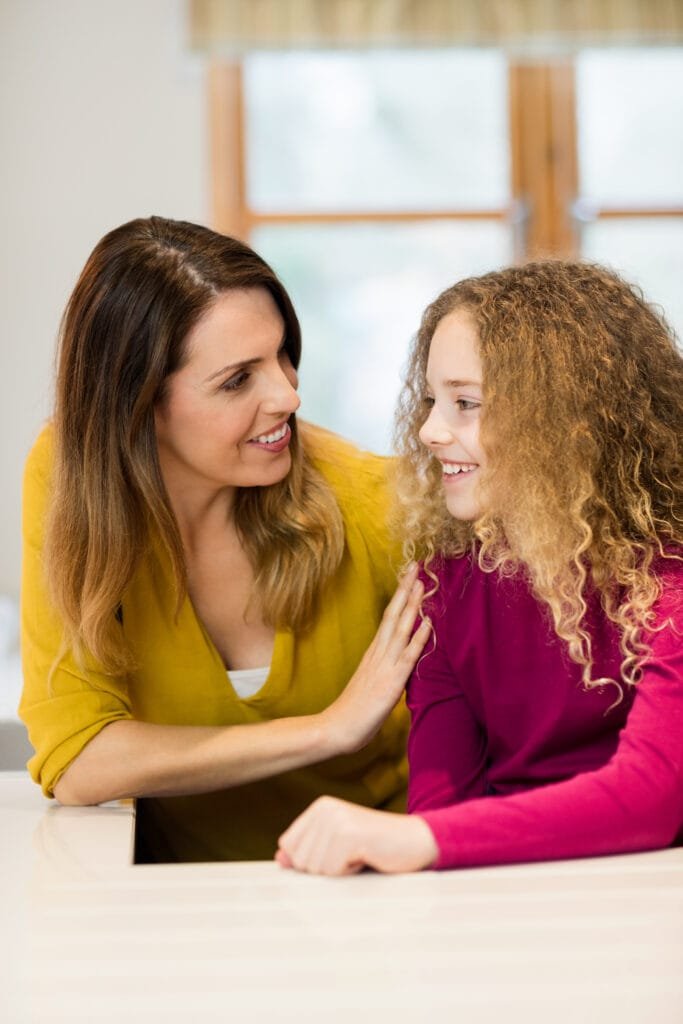In today’s fast-paced and full of demands world, parents search for meaningful ways to connect with their children while teaching important life lessons. Mindful discipline offers a path to deeper understanding and lasting bonds.
The journey of mindful parenting transforms both parent and child, creating a legacy of emotional intelligence and trust that spans generations.

Understanding Mindful Discipline
Traditional discipline often focuses on controlling behaviour. Mindful discipline shifts this paradigm to understanding and connection.
Mindful discipline represents a fundamental shift in the parenting approach. This method integrates neuroscience with compassionate guidance. Parents learn to observe their own reactions while responding to their children’s needs with intention and understanding.
Dr. Dan Siegel explains:
“Mindful discipline helps children develop an integrated brain, leading to better decisions and stronger emotional regulation.”
Inner Critic Response: “This soft approach will create undisciplined children.”
Best Response: “Research shows children raised with mindful discipline develop stronger self-discipline and moral compass than those raised with punitive methods.”
Understanding mindful discipline creates the foundation for transformative parenting practices that benefit both parent and child.
The Science Behind Trust-Based Discipline
Scientific research validates the effectiveness of mindful discipline approaches across various developmental stages.
Recent studies from Harvard’s Center on the Developing Child reveal:
- Children’s stress response systems develop optimally in environments of supportive discipline
- Trust-based discipline strengthens neural pathways for emotional regulation
- Secure attachment through mindful discipline predicts better academic outcomes

Inner Critic Response: “Scientific evidence doesn’t replace good old-fashioned discipline.”
Best Response: “Science helps us understand how children’s brains develop, allowing us to work with natural development instead of against it.”
The scientific foundation of mindful discipline provides parents with confidence in their gentle approach.
Core Principles of Mindful Discipline
These fundamental principles create a framework for consistent, compassionate parenting.
Pause Before Responding
- Practice the STOP method:
- Stop what you’re doing
- Take a breath
- Observe your thoughts and feelings
- Proceed mindfully
- Use this pause to check your emotional state
- Consider your child’s developmental stage
Set Clear Boundaries
- Use positive language to state expectations
- Explain the reasoning behind the rules
- Maintain consistency while showing flexibility
- Create visual reminders for young children
- Involve children in setting appropriate boundaries
Validate Feelings
- Name emotions with specific vocabulary
- Share your own emotional experiences
- Create safe spaces for emotional expression
- Use emotion charts for younger children
- Practice active listening without judgment
Inner Critic Response: “Children need to learn to toughen up, not talk about feelings all day.”
Best Response: “Emotional intelligence predicts success better than IQ. We’re preparing children for real-world challenges.”
These principles work together to create a supportive environment for growth and learning.
Practical Implementation Steps
Transform principles into daily practices with these concrete steps.
Morning Connection
- Dedicate 5-10 minutes of uninterrupted attention
- Practice gratitude together
- Share intentions for the day
- Create a special morning ritual
- Keep electronics away during this time

Time-In Practice
- Designate a comfortable space
- Stock with calming items
- Stay present without forcing a conversation
- Offer physical comfort when welcomed
- Use this time for connection, not correction
Self-Regulation Exercises
- Practice deep breathing together
- Use body scan meditation
- Create calm-down jars
- Implement movement breaks
- Model emotional naming
These practical steps build habits that strengthen family bonds over time.
Common Challenges and Solutions
Every parent faces obstacles in implementing mindful discipline. Here are some solutions.
Time Pressure
- Integrate mindfulness into existing routines
- Use transition times for connection
- Create “mindful moments” during daily tasks
- Schedule short but consistent practice times
- Use car rides for meaningful conversations
Consistency Challenges
- Start with one practice for two weeks
- Use reminder apps or visual cues
- Create a family mindfulness calendar
- Celebrate small successes
- Join parent support groups
Partner Alignment
- Share relevant articles and research
- Attend parenting workshops together
- Set regular check-ins to discuss approach
- Create shared family values
- Respect different learning curves
Inner Critic Response: “These solutions require too much effort and time.”
Best Response: “Small, consistent changes create lasting transformation. Every mindful moment counts.”
Challenges become opportunities for growth when approached with patience and understanding.

Ready to Transform Your Parenting Journey?
Take the next step in your mindful parenting practice with professional guidance.
Book a Private Online Session:
- Personal assessment of your parenting challenges
- Customized mindful discipline strategies
- Weekly support and accountability
- Flexible scheduling options
Click here to schedule your complimentary 20-minute consultation
Email: info@emiliyageorgieva.com
Your journey to mindful parenting begins with a single step. Connect with me today to create lasting positive change in your family.
Final Note: Remember, mindful discipline is not about perfection but progress. Each mindful moment builds stronger family connections and creates a foundation of trust that lasts a lifetime.




